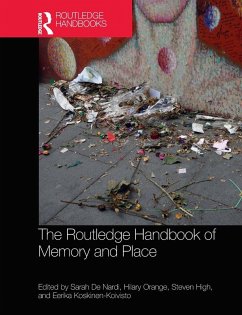
Literary and Cultural Representations of the Hinterlands
Versandkostenfrei!
Versandfertig in 6-10 Tagen
170,99 €
inkl. MwSt.
Weitere Ausgaben:

PAYBACK Punkte
85 °P sammeln!
This interdisciplinary collection explores the diverse relationships between the frequently ignored and inherently ambiguous hinterlands and their manifestations in literature and culture. Moving away from perspectives that emphasize the marginality of hinterlands and present them as devoid of agency and "cultural currency", this collection assembles a series of original essays using various modes of engagement to reconceptualize hinterlands and highlight their semiotic complexity. Apart from providing a reassessment of hinterlands in terms of their geocultural significance, this book also exp...
This interdisciplinary collection explores the diverse relationships between the frequently ignored and inherently ambiguous hinterlands and their manifestations in literature and culture. Moving away from perspectives that emphasize the marginality of hinterlands and present them as devoid of agency and "cultural currency", this collection assembles a series of original essays using various modes of engagement to reconceptualize hinterlands and highlight their semiotic complexity. Apart from providing a reassessment of hinterlands in terms of their geocultural significance, this book also explores hinterlands through such concepts as nostalgia, heterotopia, identity formation, habitation, and cognitive mapping, with reference to a wide geographical field. Literary and filmic revisions of familiar hinterlands, such as the Australian outback, Alberta prairie, and Arizona desert, are juxtaposed in this volume with representations of such little-known European hinterlands as Lower Silesia and Ukraine, and the complicated political dimension of First World War internment camps is investigated with regard to Kapuskasing (Ontario). Rural China and the Sussex Downs are examined here as writers' retreats. Inner-city hinterlands in Haiti, India, Morocco, and urban New Jersey take on new meaning when contrasted with the vast hinterlands of megacities like Johannesburg and Los Angeles. The spectrum of diverse approaches to hinterlands helps to reinforce their multilayered and multivocal nature as spaces that defy clear categorization.














